If there’s something the market is saturated with, it’s big gray military shooters. A video game genre that has proven to be one of the most popular in the gaming industry, franchises like Call of Duty and Battlefield have been juggernauts for over a decade. Where they both shine in multiplayer war zones and single-player set-pieces, they have both proven time and time again to be too afraid to tackle larger themes in their narratives.
This genre of shooters often adopts the appearance of real-world conflicts. More often than not, however, this is nothing more than window dressing. Development teams continue to choose the path of least resistance when it comes to larger issues that actually exist within the battles that inspired them. This not only diminishes some of the issues at hand but ends up being downright cowardly.
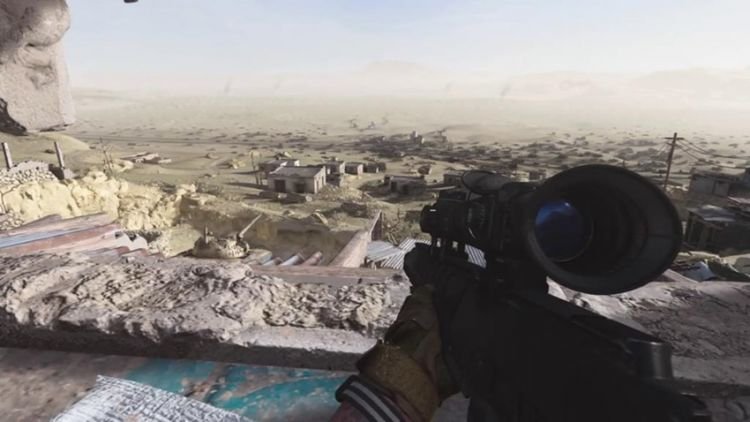
Call of Duty is a prime example of this. Despite being a franchise whose inception revolved heavily around Nazis and the conflicts of World War II, it never manages to say much. It did the bare minimum and simply had the opposing force be Nazis. Obviously, Nazis are bad but the teams behind the early installments revolving around WWII didn’t do much to expand on that beyond the surface level understanding that they are real-life villains. It’s a pattern that has existed to this day and permeated even newer entries in the series. Call of Duty is a franchise that has always whittled down its narratives to be as palatable as possible.
It’s not to say that Call of Duty hasn’t attempted to shed light on real-life tragedies. The 2019’s Modern Warfare reboot took an opportunity to depict The Highway of Death, a prominent event during the Gulf War that saw American soldiers using excessive force against the people of Kuwait. The problem was that it took an actual war crime committed by the United States and recontextualized it to be perpetrated by a Russian antagonist. To make matters worse, the United States was placed in the role of the “heroes” in the conflict while shifting that blame to Russia. It’s a slippery slope of revisionist history that we need to be mindful of when it comes to the stories that are being told.
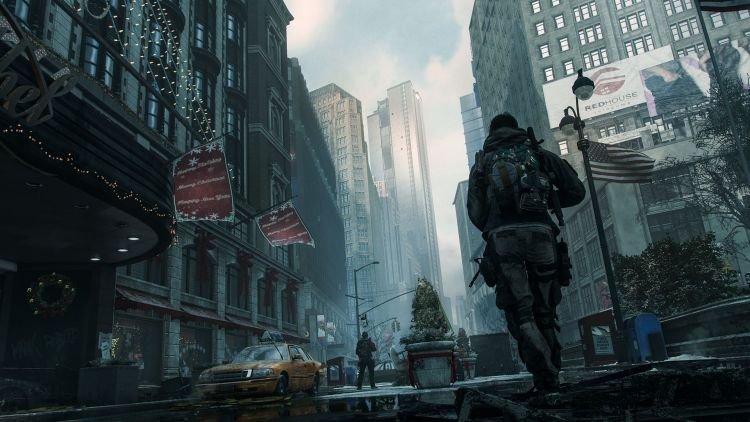
Many titles have opted to leave politics at the door and conveniently forget that war is inherently political. Ubisoft’s Division franchise for instance frequently toes the line of having politics, but the studio always does some kind of damage control to ensure its player base that its titles are apolitical. There’s a major disconnect between the subject matter of a game like The Division and the notion that there are no political machinations in play. Not to mention, it also prominently has Tom Clancy’s name attached to it. If you know anything about his work, then you know that most of his novels were political thrillers that skewed towards right-wing rhetoric. A fact that Ubisoft seems to routinely shift away from whenever questioned about their titles that bear his name.
Spec Ops: The Line, however, uses a different tactic with its storytelling. While not explicitly based on any specific conflict, it is inspired by the novel Heart of Darkness and by extension, the film Apocalypse Now that the novel inspired. Throughout the game’s narrative, you find yourself traveling through a war-torn version of Dubai and put in scenarios that make you question the ethics of your actions. For instance, you are given control of a series of airstrikes and given free rein to fire on insurgents. The twist of that knife comes from the game never really telling you that these are hostile enemies. You quickly realize that these were actually civilians that you fired upon in the chaos. It may not be based on any real or specific conflict, but the impact is still genuine. After nearly a decade since its release, it remains an unflinching portrayal of war crimes and the psychological effects that follow.
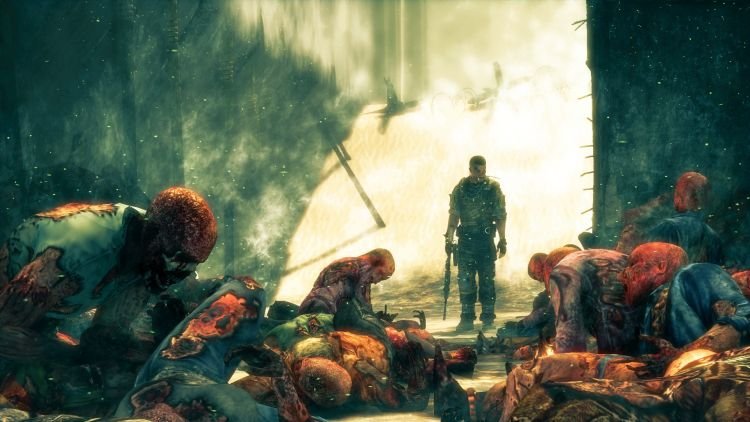
Spec Ops: The Line as a shooter is great. Spec Ops: The Line as an analysis of the horrors of war is phenomenal and one of the most memorable and gut-wrenching experiences available in games to this day. It’s a game that challenges and makes you question your actions. At times it will even make you feel absolutely vile for participating in the conflict. It is a testament to the stories that can come from this medium and an example of the kinds of stories that can be told within a big bombastic military shooter. Yet, it is, of course, necessary to talk about the very recent elephant in the room, Six Days in Fallujah.
The once canceled shooter has now resurfaced with a new home via publisher Victura. Back in 2009, the game received a lot of flack for its gamification of not only a very recent conflict but one that saw the United States once again engaging in war crimes. Among the laundry list of crimes committed was the use of white phosphorus against civilians in the Iraqi city of Fallujah. Considering the complexity of the history of the conflict, one thing remains clear: it was a tragic event that took place at the hands of American soldiers and is one of the many reasons why their presence in the Middle East was disastrous and traumatizing for so many.
Seeing Six Days in Fallujah make its return was a surprise, yet the even bigger plot twist is the direction that the developers are taking with the game. In a discussion with Polygon last month, the head of Victura Peter Tamte stated that the game would not be taking any type of political stance or delving into any type of commentary. As you can imagine, this was met with a lot of confusion from anyone that has even the slightest understanding of the conflict that inspired the title. To make matters more confusing was a recent follow-up posted to Victura’s own Twitter page.
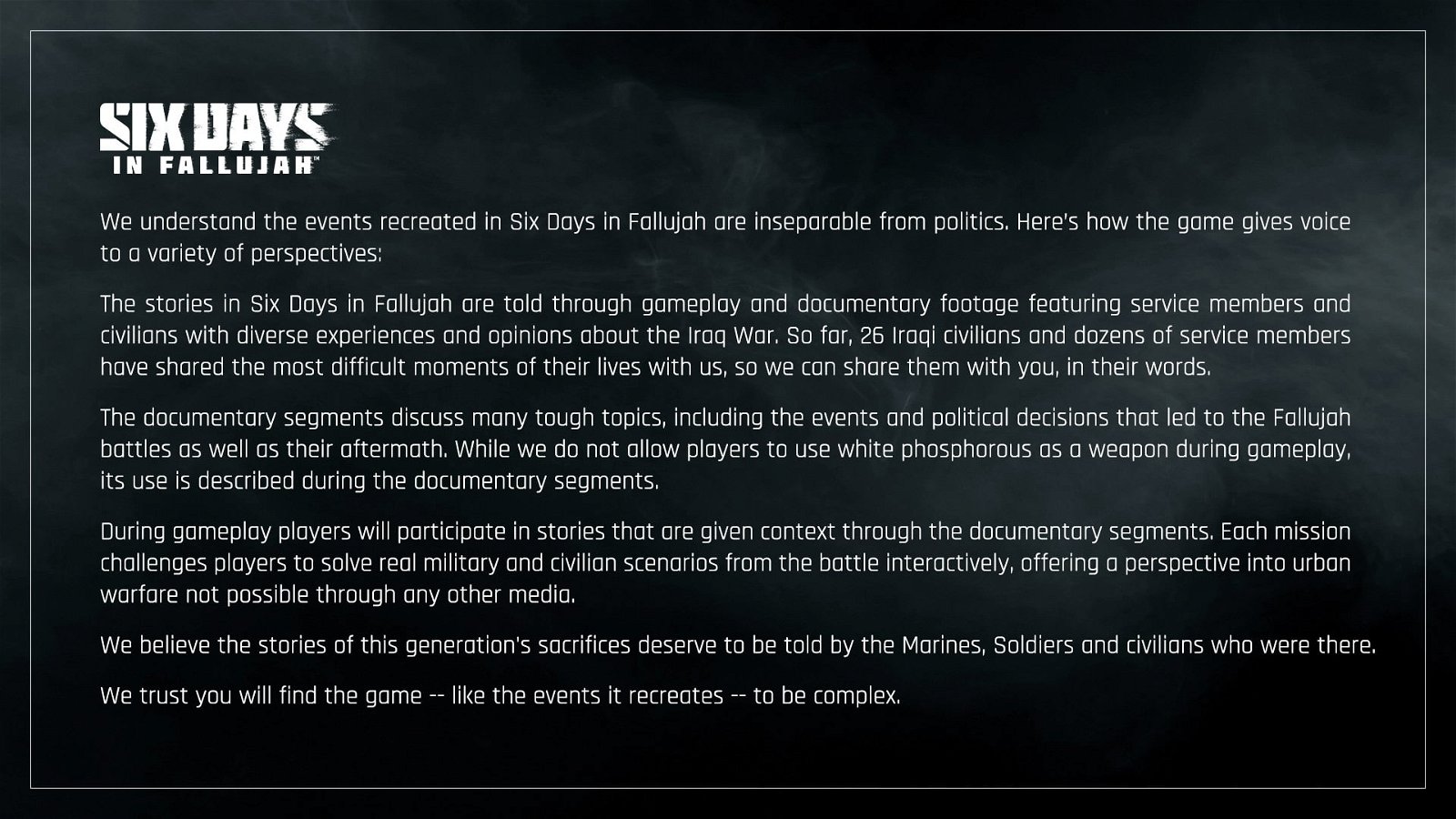
“The events in Six Days in Fallujah are inseparable from politics.” While the statement from the tweet in itself is not inaccurate, it stands in stark contrast to what came before in the game’s marketing and from the mouths of its creative team. The tweet went on to mention the game’s inclusion of documentary footage for the added context of in-game events as well as to highlight the political machinations that led to decisions on and off the battlefield. So which is it? You can’t have it both ways. Your military shooter is either going to be political, or it is not. This statement comes off more like damage control than anything else.
By now, it’s probably clear that I am in the camp of people who do not think that this should be the topic of a game. That being said, if they’re going to tackle such a major recent event, it should be handled in such a way that does not erase that history. This is an opportunity actually to take a stance and speak on these events. Using the conflict in Fallujah as simply a set-dressing is reductive, dismissive, and revisionist.
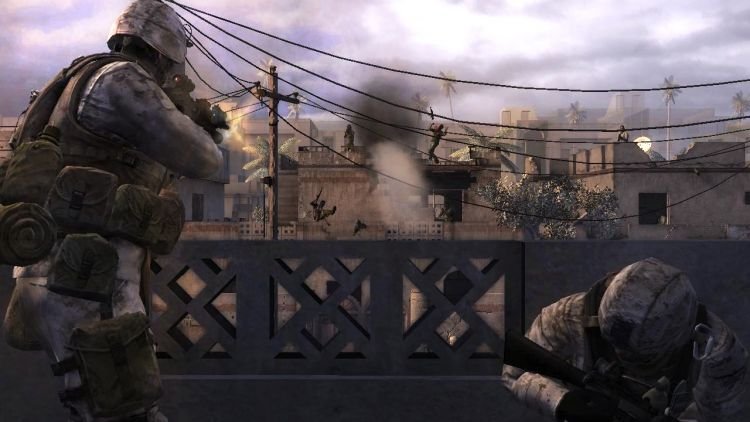
There exists a subset of players with their heads in the clouds who wince at the existence of politics in video games and entertainment media. The reality is that media has always been political, as it reflects the ideals of the minds behind it. Disagreements happen regardless of what stance you take. Unfortunately, the type of people that get so up in arms about political themes are the ones that so many developers seem to fear.
This may come as a surprise to some, but you can’t have a war without politics. No war has ever been fought without some underlying Trying to remove those elements to appeal to the masses is lazy and does more harm than good. That being said, not every military story has to be a political commentary. However, when a developer is basing a game not only on a recent historical event but a controversial one, it is irresponsible not to add something to expand on the conversation. Removing any blame or responsibility lessens the real-world impact and the consequences that should not be ignored.
Not every story needs to be adapted or gamified in some way. It goes to show that some stories just should not be made into video games in the same way that some video games should remain canceled.

